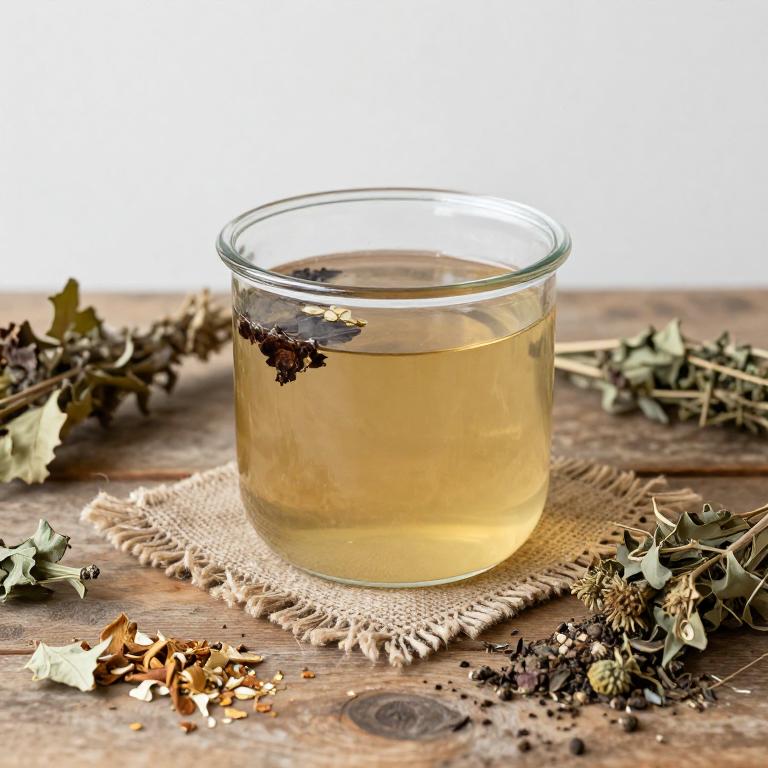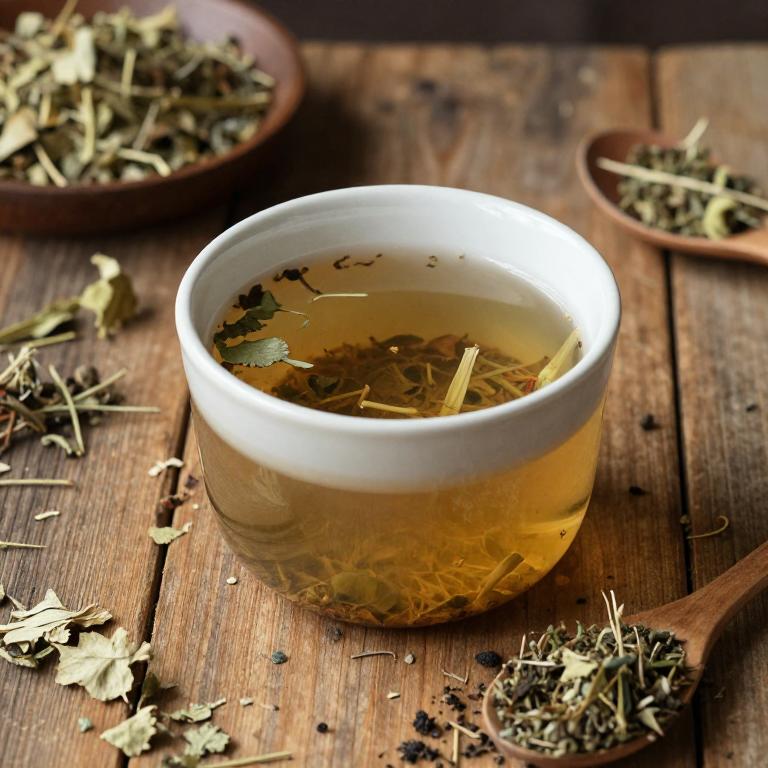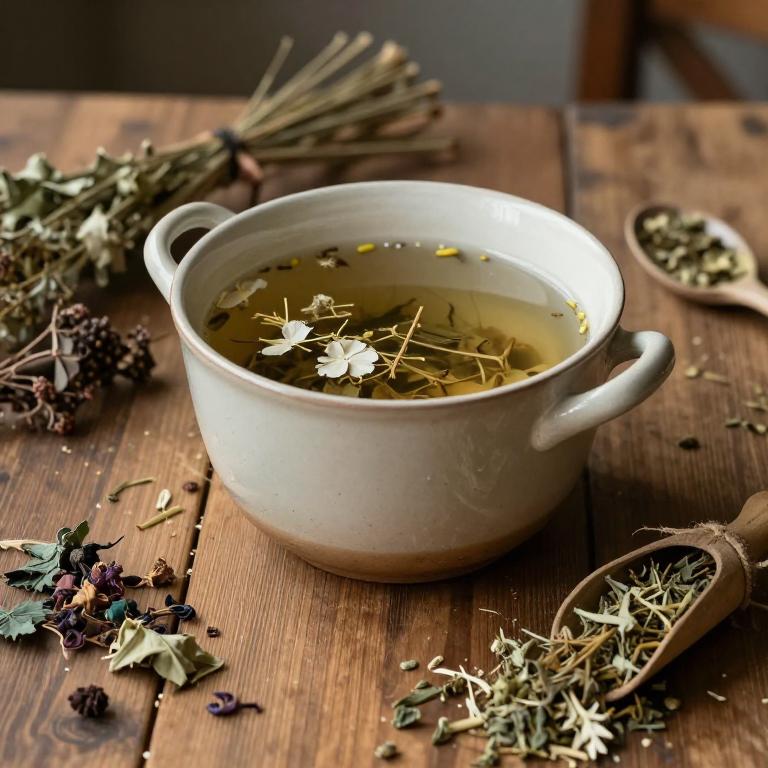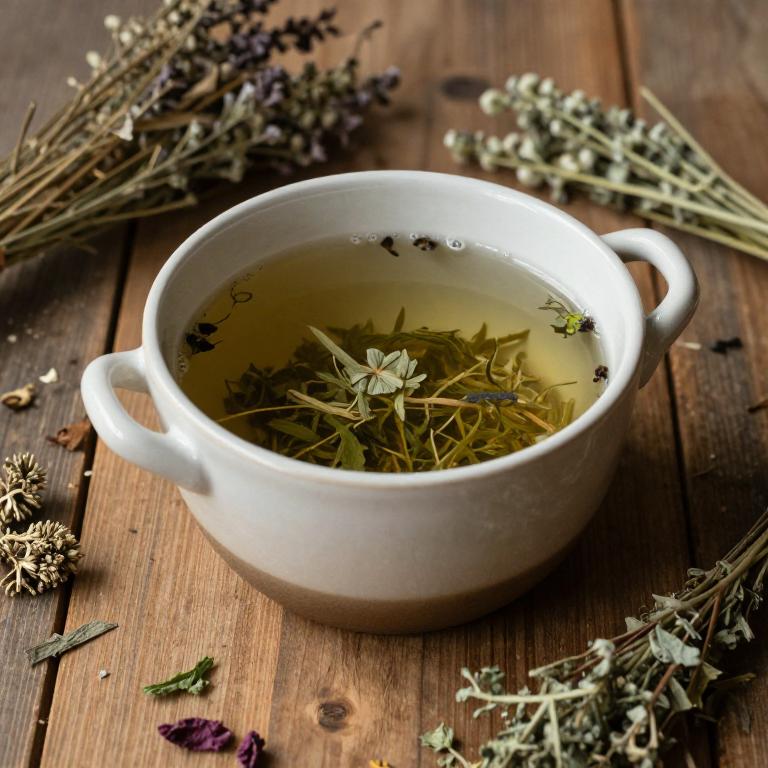10 Best Herbal Decoctions For Hyperacidity

Herbal decoctions have been traditionally used to alleviate symptoms of hyperacidity, a condition characterized by excessive stomach acid production.
Commonly used herbs include ginger, licorice root, and aloe vera, which possess anti-inflammatory and soothing properties that can help neutralize stomach acid and protect the stomach lining. These herbs are often prepared by simmering dried plant parts in water to extract their active compounds, making them easily consumable in tea or liquid form. Regular consumption of such decoctions may help reduce heartburn, indigestion, and other related discomforts.
However, it is advisable to consult a healthcare professional before using herbal remedies, especially for individuals with pre-existing medical conditions or those taking medications.
Table of Contents
- 1. Ginger (Zingiber officinale)
- 2. Peppermint (Mentha piperita)
- 3. Cumin (Cuminum cyminum)
- 4. Black pepper (Piper nigrum)
- 5. Ashwagandha (Withania somnifera)
- 6. Licorice (Glycyrrhiza glabra)
- 7. Turmeric (Curcuma longa)
- 8. Marshmallow (Althaea officinalis)
- 9. Tulsi (Ocimum sanctum)
- 10. Thistle (Silybum marianum)
1. Ginger (Zingiber officinale)

Zingiber officinale, commonly known as ginger, is widely used in herbal decoctions to alleviate symptoms of hyperacidity due to its anti-inflammatory and carminative properties.
When prepared as a decoction, ginger helps neutralize excess stomach acid and soothe the gastrointestinal tract by stimulating the production of protective mucus. The active compounds in ginger, such as gingerol and shogaol, are believed to reduce gastric acid secretion and enhance digestive enzyme activity. This herbal remedy is often recommended for individuals experiencing heartburn, indigestion, or peptic ulcers caused by hyperacidity.
However, it is advisable to consult a healthcare professional before using ginger decoctions, especially for those with existing medical conditions or taking medications.
2. Peppermint (Mentha piperita)

Mentha piperita, commonly known as peppermint, is often used in herbal decoctions to alleviate symptoms of hyperacidity due to its soothing and antispasmodic properties.
When prepared as a decoction, peppermint leaves are simmered in water to release essential oils and active compounds that can help reduce excess stomach acid. The cooling effect of mentha piperita helps to calm the digestive system and may provide relief from heartburn and indigestion associated with hyperacidity. However, it is important to note that while peppermint can be beneficial, it may also relax the lower esophageal sphincter in some individuals, potentially worsening acid reflux in certain cases.
As with any herbal remedy, it is advisable to consult a healthcare professional before use, especially for those with pre-existing gastrointestinal conditions.
3. Cumin (Cuminum cyminum)

Cuminum cyminum, commonly known as cumin, has been traditionally used in herbal medicine for its potential therapeutic effects on hyperacidity.
The decoction of cumin seeds is prepared by boiling the dried seeds in water, allowing the active compounds to infuse into the liquid. This herbal preparation is believed to neutralize excess stomach acid and soothe the digestive system due to its anti-inflammatory and carminative properties. Cumin decoctions may help reduce symptoms such as heartburn and indigestion by promoting healthy gastric motility.
However, it is important to consult a healthcare professional before using cumin decoctions, especially for individuals with pre-existing medical conditions or those taking medications.
4. Black pepper (Piper nigrum)

Piper nigrum, commonly known as black pepper, has been traditionally used in herbal medicine for its potential therapeutic effects on digestive health.
Herbal decoctions made from black pepper are believed to help alleviate symptoms of hyperacidity by stimulating the production of digestive enzymes and promoting the expulsion of excess stomach acid. The active compounds in black pepper, such as piperine, may enhance the absorption of other nutrients and support the body's natural digestive processes. However, due to its potency, it is important to use black pepper decoctions in moderation and consult with a healthcare provider, especially for individuals with pre-existing gastrointestinal conditions.
Overall, while some studies suggest potential benefits, more research is needed to fully understand its efficacy and safety in treating hyperacidity.
5. Ashwagandha (Withania somnifera)

Withania somnifera, commonly known as ashwagandha, has been traditionally used in Ayurvedic medicine for its adaptogenic and calming properties.
Herbal decoctions of Withania somnifera are believed to help manage hyperacidity by reducing gastric acid secretion and soothing the stomach lining. The active compounds, such as withanolides, may act as antioxidants and anti-inflammatory agents, which can alleviate symptoms associated with excess stomach acid. Studies suggest that ashwagandha may also enhance the body's stress response, indirectly supporting digestive health.
However, it is important to consult a healthcare provider before using ashwagandha, especially for individuals with existing medical conditions or those taking medications.
6. Licorice (Glycyrrhiza glabra)

Glycyrrhiza glabra, commonly known as licorice, has been traditionally used in herbal medicine for its soothing effects on the digestive system.
Its decoctions, prepared by boiling the root in water, are often employed to alleviate symptoms of hyperacidity, such as heartburn and indigestion. The active compounds in licorice, including glycyrrhizin and flavonoids, are believed to reduce gastric acid secretion and protect the stomach lining. However, long-term use of licorice decoctions may lead to side effects like hypertension and potassium depletion due to its mineralocorticoid-like effects.
As a result, it is typically recommended to use licorice in moderation and under the guidance of a healthcare professional.
7. Turmeric (Curcuma longa)

Curcuma longa, commonly known as turmeric, contains curcumin, a potent anti-inflammatory and antioxidant compound that has been traditionally used in herbal medicine.
Herbal decoctions made from Curcuma longa are often prepared by boiling the rhizomes in water to extract its active compounds, which can help alleviate symptoms of hyperacidity. These decoctions work by reducing gastric acid secretion and soothing the lining of the stomach, thereby providing relief from heartburn and indigestion. Studies suggest that curcumin may also enhance the protective mechanisms of the gastrointestinal tract.
However, it is advisable to consult a healthcare provider before using turmeric decoctions, especially for individuals with existing medical conditions or those taking medications.
8. Marshmallow (Althaea officinalis)

Althaea officinalis, commonly known as marshmallow, has been traditionally used in herbal medicine for its soothing properties, particularly in treating hyperacidity.
The root of the plant is typically used to prepare a decoction, which involves simmering the dried root in water to extract its beneficial compounds. This decoction is valued for its demulcent effects, which help to coat and protect the lining of the stomach and esophagus, reducing irritation caused by excess stomach acid. The mucilage present in Althaea officinalis can help neutralize acid and promote a sense of comfort in the digestive tract.
While it is often used as a complementary therapy, it is advisable to consult a healthcare professional before using it for persistent or severe cases of hyperacidity.
9. Tulsi (Ocimum sanctum)

Ocimum sanctum, commonly known as holy basil, has been traditionally used in Ayurvedic medicine for its soothing and anti-inflammatory properties.
Herbal decoctions made from Ocimum sanctum leaves are believed to help alleviate symptoms of hyperacidity by neutralizing excess stomach acid and protecting the stomach lining. The active compounds in holy basil, such as eugenol and rosmarinic acid, contribute to its ability to reduce gastric irritation and promote digestive health. These decoctions are often prepared by boiling fresh or dried leaves in water and consumed as a tea or tonic.
Regular use of Ocimum sanctum decoctions may support overall digestive balance and provide relief from heartburn and indigestion associated with hyperacidity.
10. Thistle (Silybum marianum)

Silybum marianum, commonly known as milk thistle, is traditionally used in herbal medicine for its hepatoprotective properties, but it has also been explored for its potential benefits in managing hyperacidity.
The active compound, silymarin, is believed to exert a protective effect on the gastric mucosa by reducing the secretion of gastric acid and enhancing the production of mucus. Herbal decoctions made from the leaves and seeds of Silybum marianum are often prepared by simmering the dried plant material in water, and they are consumed several times a day to alleviate symptoms of excess stomach acid. While some studies suggest that milk thistle may help in reducing hyperacidity, more research is needed to confirm its efficacy and optimal dosage.
It is important to consult a healthcare professional before using milk thistle, as it may interact with certain medications or have side effects in some individuals.